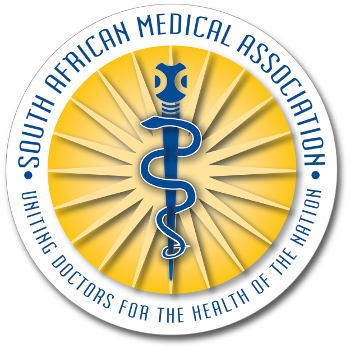SAMA STATEMENT ON CRIMINALISATION OF MEDICAL PRACTICE
The South African Medical Association (SAMA) says the criminalisation of medical practice does not prevent human error, and that a transparent, fair, and consistently applied process must be used to investigate medical errors, and to respond accordingly to the results. The medical association takes this view in light of recent developments where doctors have been arrested and summoned to appear in court, without proper medical investigations first proceeding these events.
SAMA says doctors take a sacred oath to “first do no harm” and that they understand the pain of losing a loved one; it notes that doctors too, are traumatised by the loss of a patient.
It says the mandate of the medical profession is to intervene in the natural course of a disease or trauma in the best interests of patients and that with any form of intervention, especially those involving surgery, the patient (or family or society) agrees to that their doctor will perform a necessary controlled injury to the body, with the aim of producing a cure. The potential risks are carefully weighed against the benefits and found to be acceptable to the patient, guardian, and society at large.
For this benefit to society, the State concedes to suspend the usual laws that criminalise one person inflicting physical injury on another, on the basis of reasonable and good intent. This transaction of reasonability is what makes the practice of medicine possible.
But SAMA warns that should this transaction of reasonability not be present, and doctors start to feel either unsafe or that the potential for a possible adverse outcome may constitute an unavoidable risk to themselves, or if they feel that there is a significant risk of criminal charges being laid, despite following accepted practice, the knock on effects are immense.
These are:
· The decisions by prospective and current doctors to either enter or stay in the medical profession
· The significant danger that doctors will become risk averse and avoid intervention, resulting in life-saving procedures being withheld
· The leading to excessive diagnostic interventions and increase in the cost of healthcare
· The potential refusal of doctors to provide interventions when necessary. This type of healthcare risks doctors becoming paralysed in their decision making
SAMA says doctors who commit criminal acts which are not part of patient care must remain liable to criminalisation as all other members of society. Serious abuses of medical practice must be subject to the law, usually through professional regulatory processes.
It notes that countries such as the United Kingdom classify a separate level of Gross Negligence which implies a severe deficiency in the expected level of care provided by a doctor. However, events that cause, or may cause, patient harm should be reported promptly and investigated thoroughly using established techniques to identify all possible causes and contributory factors.
Medication facilities, risk management, patient factors and organisational leadership are all partially accountable in determining whether negligence has taken place and to help determine the appropriate actions to help prevent further human error and ensure safe patient care.
In relation to the criminalisation of the medical profession, SAMA recommends:
1. Opposing the criminalising medical judgment.
2. Opposing the criminalising of medical decisions, including a doctor’s variance from guidelines and standards.
3. Implementing action plans to alert leaders, elected officials, and the media about the detrimental effects on healthcare that result from criminalising medical decision making.
4. Supporting doctors’ right to professional autonomy and self-regulation.
5. Developing a culture of shared accountability and leadership.
6. Developing a framework to be utilised in future to protect doctors and their patients.
Further to the above, please see the following for additional resources about the criminalisation of the medical profession
1 SAMA position statement on criminal charges. 2020.
https://www.samedical.org/cmsuploader/viewArticle/1017
2 WMA. 2013. WMA Resolution on Criminalisation of Medical Practice.
https://www.wma.net/policies-post/wma-council-resolution-on-criminalisation-of-medical-practice/
3 NCCMERP. 2020. Statement Opposing the Criminalization of Errors in Healthcare.
https://www.nccmerp.org/statement-opposing-criminalization-errors-healthcare
[ENDS]
Notes to Editors
About SAMA
The South African Medical Association was formally constituted on 21 May 1998 as a unification of a variety of doctors’ groups that had represented a diversity of interests. SAMA is a non-statutory, professional association for public, and private sector medical practitioners. SAMA is a voluntary membership association, existing to serve the best interests and needs of its members in any and all healthcare related matters.
Contact:
Head of PR & Communications
Dr Simonia Magardie
082 905 8505
Email: simoniam@samedical.org
Spokesperson 1
Chairperson: SAMA
Dr A Coetzee
082 379 8118
Email: dr.coetzee@worldonline.co.za
Spokesperson 2
Vice-Chairperson: SAMA
Dr M Mzukwa
076 382 8152
Email: mzukwam@gmail.com
